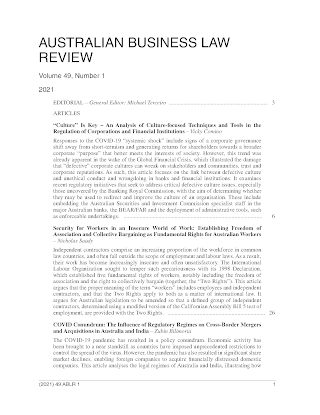I was having a look at this LPP privilege and waiver case and it reminded me of how we used to do things in my team at the ACCC.
We often had a designated note taker for meetings who was the only person who would take notes, particularly meetings with witnesses. There was nothing worse than a bunch of ACCC officers attending a meeting and all of them taking notes of what the witness said, which ended up all being slightly different. Later on if those notes had to be handed over to the other side you have just given the respondents / defendants a field day in terms of seeking to exploit prior inconsistent statements purportedly made by your witness.Even better why take notes at all - just audio record the interview so as to avoid any mistakes or misinterpretations about what the witness said.
Another option I liked was to not write anything down at all once we were in litigation unless absolutely necessary. It was much easier and safer to just pick up the phone and have a chat rather that firing off an email.
Nothing worse than cruelling your own witnesses!






